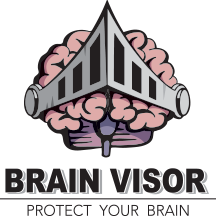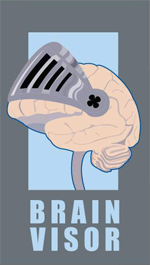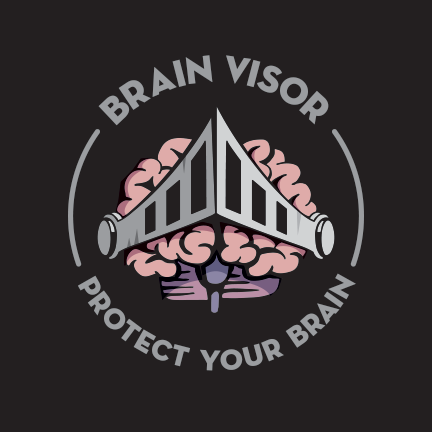Frenetic Brain
All college students experience occasional stress. For some, it happens before taking a test. For others, it might occur before going on a first date. In small doses, stress can be beneficial. It can give a little push, motivating students to do their best (or to be on their best behavior). Stress drives students to study for final exams when they would rather be checking their Facebook page or hanging out with friends.
Excessive and chronic stress kills brain cells and impairs memory. While small doses of stress can be beneficial, too much stress can have devastating effects on the brain. When stressed, the body releases cortisol which travels into the brain, binding to the receptors in the neurons. The neurons react by admitting calcium through channels in their membrane. Chronic and elevated stress overloads the neurons with calcium causing them to fire too frequently and die.
The over-secretion of cortisol in the brain impairs memory by preventing access to existing memories and hindering the ability to memorize new information. Additionally, the increase in cortisol suppresses the immune system, increasing the risk of infections and allergies. During exposure to chronic stress, the hippocampus shows shrinkage as individual nerve cells become shorter and less branched, hindering neural communication. By contrast, the amygdala, the part of the brain that regulates fear and emotion, becomes larger and more active resulting in increased anxieties and fears.
Learn to recognize the warning signs of stress
Physical Symptoms
|
Cognitive Symptoms |
Emotional Symptoms
|
Behavioral Symptoms
|
Headaches or backaches |
Memory problems |
Anxious/agitated |
Sleeping too much or too little |
Muscle tension and stiffness |
Inability to concentrate |
Restlessness |
Procrastinating, neglecting responsibilities |
Indigestion |
Anxious or racing thoughts |
Feeling tense/inability to relax |
Nervous habits (e.g. nail biting, pacing) |
Insomnia |
Constant worrying |
Feeling overwhelmed |
Overreacting to unexpected problems |
Increased heart rate |
Fearful anticipation |
Irritability, impatience |
Teeth grinding or jaw clenching |
Nervous tics |
Trouble thinking clearly |
General unhappiness |
Overdoing activities (e.g. shopping) |
Skin breakouts |
Seeing only negative |
Sense of loneliness and isolation |
Picking fights with others |
Weight gain or loss |
Indecisiveness |
Short temper |
Using alcohol or medication to relax |
Loss of objectivity |
Acting impulsively |
____________________________________________________________________________________________________________________________________________
Learn to manage your stress by setting limits with yourself and others • Keep your expectations realistic and choose your own goals • Be positive and develop a positive support system • Learn to anticipate potentially stressful situations so that you can prepare for them.
Here are some additional tips for reducing stress:
1. Get at least 30 minutes of exercise a day "Cast all your anxiety on him because he cares for you." - 1 Peter 5:7 |
____________________________________________________________________________________________________________________________________________
SEEING GOD THROUGH STRESS (Video) Professor Jud Lake, ThD, DMin of Southern Adventist University presents a remarkable message entitled, "Seeing God Through Stress". |
||||
|
"From Stress to Joy" Author: Gillian Bethel |
Introduction
|
|||
Amazing Facts: Online Library |
||||
Epstein Stress Management Inventory for Individuals (ESMI-i): View |
||||
 |
BrainVisor – Protect Your BrainBrainVisor does not provide medical or psychological advice, diagnosis or treatment recommendations. The material on this site is for informational purposes only and is not a substitute for your doctor or other health care professional's care.
|
 |
||
|














